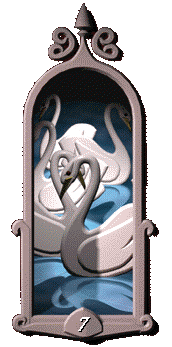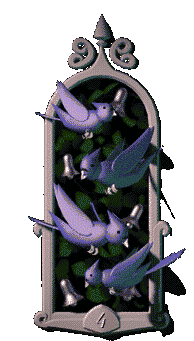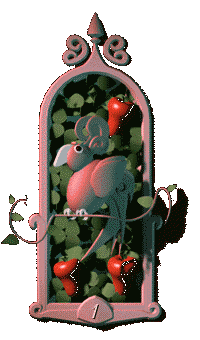 “You’re beginning something pretty important, and it will be forever.”
“You’re beginning something pretty important, and it will be forever.”
On this day in 1954, actor Denzel Washington, professional wrestler Lanny Poffo, and magazine editor and morning news anchor Gayle King, were born --
as was yours truly. Shortly after seven in the morning, at Saint Ann's Infant and Maternity Home on Cleveland's east side, I came into the world. About two weeks later, already settled into the second floor of a modest duplex apartment, I received my first letter.
Saint Susanna Rectory
500 Reading Road
Mason, Ohio
January 8, 1955
Master David Lawrence Alexander
875 Helmsdale Road
Cleveland, Ohio
Dear Davie,
Before this letter arrives, you will have been welcomed many times. I wish to add my voice to the chorus of welcome however.
You're beginning something pretty important, and it will be forever. You've got a big job to do, and that is to save your immortal soul that the Good God has given you. Dad and mother will help you in that, and will consider it their most important duty and privilege, which of course, it is.
But God will likely expect more then usual from you. You see, you have very good stuff in you, and that makes His investment pretty heavy and serious. So you'll have to do more than most others because of your rich endowment.
But despite the fact that you mommie and pop are pretty high class folks, even they have their shortcomings. Take dad for instance. Somehow or other, dads have a way of wishing their sons were big guys before they are. And so they treat them kinda rough some times. If he gets to throwing you up in the air and catching you, just to make you rough, you better explain to him that you do not approve. The first way to do that is to cry real loud. Sometimes that does the trick; but not always. Then you have to use stronger measures. For instance, sometime when he has a nice clean shirt on, and he gets a bit rough, just throw up on that nice clean shirt. That, Davie, will do it! If even that doesn't cure him, I guess you'll have to write me for further suggestions.
And now, Davie, if there is any time that I can help you to straighten out either dad or mom, just drop me a line, and I'll be glad to do what I can for you. And be sure to give them my best regards, and congratulations too on your safe arrival.
Faithfully yours,
[Father] Charles J Murphy
Sixty is the new forty.
Parade magazine recently broke the big news of a generation, that life really begins, not at forty, but at the age that everybody with an unpublished thought claims only
seems like forty. Or something. We examine it more closely as we read the signs of The Times. For example, there's the one in New York ...
Yes, my generation, born between 1946 and 1964, has physical concerns: Friends are dying, joints are aching, and memories are failing. There are financial issues, with forced retirement and unemployment, children needing money and possibly a bed, and dependent parents. But for many of us, it is a psychological quandary that is causing the most unpleasantness: looking around and suddenly being the oldest.
Every generation gets old, but for those who were told we’d be forever young, it just seems more painful …
... which comes off as only so much self-indulgence. One is more inclined to identify with the voice of a similar name in London.
And please, can we stop this “60 is the new 40” thing? No one is saying 20 is the new 10. And who wants to be 40 anyway? An insipid, insecure age.
They're right.
I remember turning forty. I had been divorced two years earlier, and was only then getting used to the solitary life on my own terms again. I wouldn't return to that era even if it did buy me another twenty years on this earth below. The office environment had become thoroughly dysfunctional, my supervising official was an alcoholic and a sadist who made my life absolutely miserable, and who fooled everyone with a title (rather easily, I'm sorry to say) into thinking nothing was amiss. They would learn differently only five years later, and my view of management was forever changed (the details of which will find a proud place in my memoirs, or my retirement luncheon, whichever comes first).
I remember turning fifty. Sal and I were sitting in an Irish bar in Cincinnati. We were in town for her to meet my family. My life, for the first time in what seemed like … well, ever, was more or less where I wanted it to be. And where I was, was a helluva long way from forty.
I remember turning sixty. Or at least I will. But how, exactly?
It is when reading the New York Times piece, that part of you wants to say, oh, cry me a river already! And then you remember that you're actually talking to yourself. Yes, "my generation, born between 1946 and 1964," really didn't want to end up like our parents; old, in the sense of being "old-fashioned," confined to the rocking chair and decrying "these kids today." But you really can't help it, because "these kids today" really are a pain in the ass. You see it in the workplace. Not only do they not show much respect to their elders, but they really don't see the point of it. They are younger, brighter, prettier, more enlightened, and in many cases, they outrank you. What more could you ask of a generation?
At the place where I work, I am older than most of the people I see in the office, in the hallways, in meetings. The exceptions are almost all of Senior Executive rank, which I try not to think about, since over the years, people who couldn't organize a sock drawer have assured me that I have no future in management (and looking at them, I can see why). I have a son who's older than one political appointee or another, any one of whom could very well feel obliged to explain to me how the world works. It doesn't actually happen to me personally, but I know it happens to others. Alas, many of the Enlightened Ones will be replaced in two years, by those who appear even younger, but who are not, because I got older.
To reach sixty is to know that your own mortality is just around the corner. People get heart attacks at this age. Even the annual issue of
Esquire magazine, the one devoted to maturing through the decades of life, concedes that after your fifties, "you're on your own." For me, going back to "the Latin Mass" was a sign of getting on in years, when after seeing "folk Masses" consisting mostly of aging adolescents trying to hang on to the unattainable, one is even less tolerant of anything with the appearance of novelty. Who wants to remember, or be remembered for, the things that pass like leaves in the wind?
Finally, and as can be discerned from the above, to reach sixty is to no longer care so much what others think of you, secure in the knowledge that, even if you had to, the die that is you has been pretty well cast by this point, and the world is going to have to live with it, if only for a little while longer.
The above being said, one can enter the later passages of life gracefully. Witness a certain
Phyllis Tucker-Saunders of Newark, New York, for whom time will not slow her down. And there are so many others, who can look in the mirror and say, well, at least I still have my health. I can say that as well, up to a point. I have a herniated disc that got a good dose of Cortizone back in 2011, and there is the occasional flare-up of arthritis in my knees. I cannot walk for great distances without a cane, and even a minor back injury prevents me from being able to stand on a moving bus. So I have a cane with me, and I have to sit down.
And I'll still take to the hills around Mount Rainier when I tour the northwest. It's harder now than a decade ago. Still ...
On the other hand, people keep telling me (and without any prompting) that I really don't look sixty. Sal assures me of the same thing -- with my hat on.
The Road Not Taken -- Yet
It is the point in life when the light at the end of the tunnel that is retirement looms ever larger. They tell you to start planning for the inevitable, and so I shall. The soonest I would ever retire from the government is the end of 2020, when I will have just turned sixty-six. But even then, I imagine I will continue working for several more years.
And why wouldn't I?
When I was in college studying graphic design, I wanted to pursue an academic minor in multimedia. But even though I learned to use simple video equipment, and made a couple of animation films, what I really wanted to do with my life hadn't been invented yet. In the coming year, I will return to my studies in web design and development. I also found the sort of curriculum that is suited for my needs, not to mention my budget. Between that and a growing aptitude in video production, and I can finally say I have reached that goal of forty years ago, the marriage of art and technology. My next few years in my evolving profession could very well be my finest. I was always a late bloomer anyway.
And so it was, that after the Latin Mass today, for which I was the Master of Ceremonies, the sacristan dragged me to the rectory basement to help her bring my present upstairs. I tried really hard to act surprised by what I found as a turned the corner, really I did.
And so it goes, turning yet another corner, on to the next decade.
 “On the seventh day of Christmas, my true love gave to me, seven swans a-swimming ...”
“On the seventh day of Christmas, my true love gave to me, seven swans a-swimming ...” Today is the Feast of Saint Sylvester, who was Pope from January 31, 314, until his death on this day in 335. He was the first bishop of Rome to refer to himself as "Pope," or more specifically, "Father (Papa)." His reign would have occurred during that of Emperor Constantine (see image above right), as well as the First Council of Nicea in 325, which composed the Nicene Creed proclaimed at Mass on Sunday. (Sylvester did not attend this council, but sent a delegation.) He is also one of the ten longest-reigning popes in history.
Today is the Feast of Saint Sylvester, who was Pope from January 31, 314, until his death on this day in 335. He was the first bishop of Rome to refer to himself as "Pope," or more specifically, "Father (Papa)." His reign would have occurred during that of Emperor Constantine (see image above right), as well as the First Council of Nicea in 325, which composed the Nicene Creed proclaimed at Mass on Sunday. (Sylvester did not attend this council, but sent a delegation.) He is also one of the ten longest-reigning popes in history.























